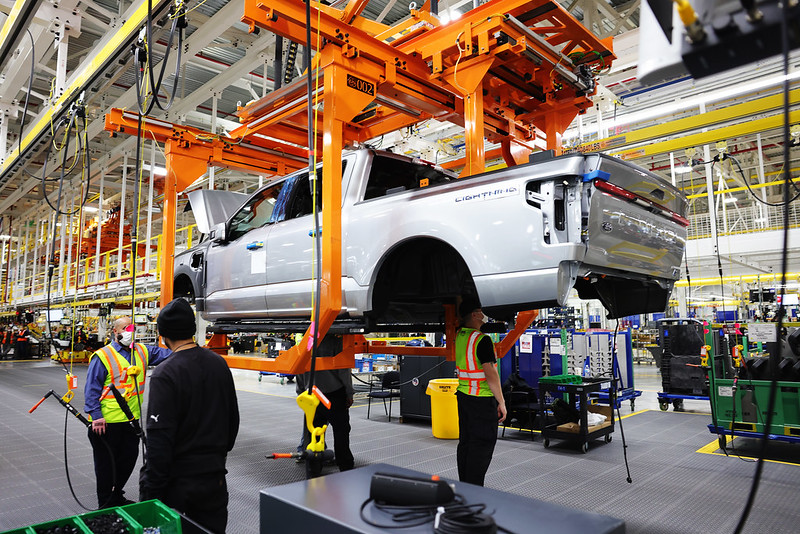Robotic manufacturing

Advanced manufacturing requires precise control and coordination of multiple systems. In the Barton and Tilbury Research Groups, researchers explore sensing and control to improve upon additive and smart manufacturing, cooperative robotics, and assistive technologies. Such projects include taking 3D printing to nanometer-scale accuracy, utilizing idle manufacturing systems through the cloud, and coordinating multiple robots to explore terrain using the least amount of energy necessary.
In any modern factory, robots will be helping workers fabricate, assemble, and finish any number of goods.
In the Barton and Tilbury Research Groups, precise control and coordination of multiple systems paves the way for even more advanced manufacturing.
Researchers explore sensing and control to improve upon additive and smart manufacturing, cooperative robotics, and assistive technologies. These 3D printers can print to nanometer-scale accuracy, allowing for electrical circuits to be printed inside of the fabricated parts. Nearby, networked CNCs test a cloud-based system to utilize idle manufacturing time–much needed research in a world where the whiplash of supply chains result in part shortages.
The groups’ research in precise control and coordination even extends beyond the factory, to coordinating multiple robots to explore terrain using the least amount of energy necessary.
